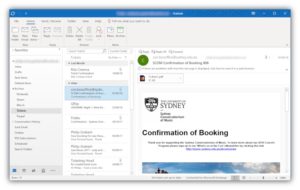Organize Your Files and Folders
The thing about desktop search engines is that if you have chaotically organized files and folders, items everywhere, with no rhyme or reason to how you save things on your computer, then your desktop search engine will work, but less effectively. If you type something into the search bar and find that it takes a long time to show you the results or that you have to sift through the results to find exactly what you need, then the problem doesn’t stem from the desktop search engine, but from your lack of organization on your computer. Use folders, and even make subfolders within those to keep things together and neat. A neat system of organization will bring up neat and quick results.
Naming Your Files and Folders
This is an important part of organizing your computer and the files within it. If you start giving a lot of files similar names you will obviously have a hard time choosing between all of them. Don’t get lazy and leave things untitled or use a name like “stuff” or “junk”. That is not going to help you in the long run, and it certainly won’t help your desktop search engine find anything worthy on your PC.
Index Settings
If you are still using the default indexing settings on desktop search engine, then you might want to change that right away. Many people don’t realize that with just a few setting changes they can greatly improve their search results. You can add locations to your index, include encrypted files into your index, or make any changes you feel would make a difference to your search results. Tweak them however you’d like. When you make changes to the index, it will need some time to rebuild itself, so wait till it is done before trying to use your desktop search engine.
Delete Old Files
This should go without saying, but really you should delete old files. If you are hesitant about whether you will need it or not, just make sure to place those files in folders that match what the subject matter of the file is. Anything that you haven’t used in ages, any file that really has nothing important, and just anything you know can be deleted; just delete it. Don’t become a digital hoarder. It’s chaotic for you, and it’s certainly messy for your search tool. Getting rid of clutter will be good for your computer and your productivity.
Keep It Up
Here is something that is really important to the success of your desktop search results and to the success of your now organized computer staying that way; keep it up. Keep naming things properly, keep deleting things you don’t need, just genuinely take the time to keep things in order. There’s no other way of getting the search results you need every time you look for something. A desktop search engine needs organization for it to work well every time.
While Windows Search works well enough, it isn’t really Microsoft’s main focus or strong point when developing a new operating system. If you find that even after all the steps you have taken to organize and boost productivity that it is still not working for you, then you do have other options. There are Windows Search alternatives out there that will boost your productivity even further, and definitely return better search results. It is up to you and what fits your needs.



Leave a Reply